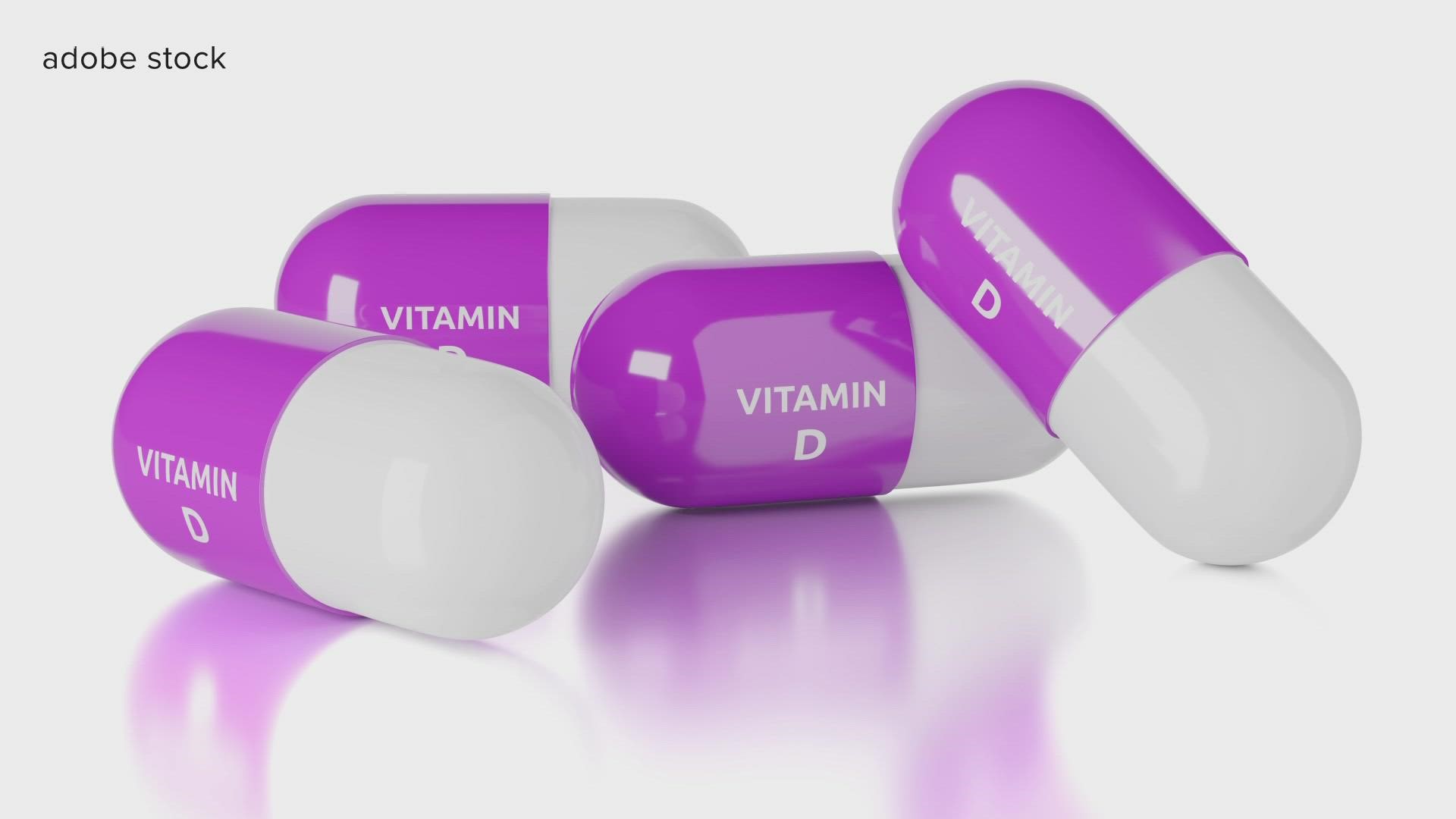CHARLOTTE, N.C. — Wintertime means less sunlight.
Many say taking a vitamin D supplement is needed during the winter months since you're not getting as much from the sun. However, is that true?
In the winter, the days are shorter meaning less sunlight and there is also more cloud coverage, in January on average, we see about 78% cloud coverage in Charlotte.
THE QUESTION:
Do healthy individuals need to take a vitamin D supplement during the winter months?
OUR SOURCES:
THE ANSWER:
No, healthy individuals do not need to take vitamin D supplements during the winter months — however, Robinson is encouraging people to talk to their doctor if they feel they need to take a supplement.
WHAT WE FOUND:
According to the U.S. Department of Health and Human Services, vitamin D is a fat-soluble vitamin that is naturally present in a few foods. It is also produced when UV rays from the sunlight strike the skin and trigger vitamin D. DHHS states vitamin D is needed for bone growth, and without sufficient vitamin D, bones can become thin, brittle, or misshapen.
Robinson said people tend to have lower vitamin D levels in the winter due to decreased sun exposure. Whether that means people need to take supplements depends on each individual's risk of deficiency.
"If you are in one of those high-risk populations, such as someone with a darker skin tone, someone who is elderly, someone who has diabetes," Robinson said. "That's something that you probably need to discuss with your health care provider as to whether or not you need to take supplementation," Robinson said.
The Cleveland Clinic lists several groups who need vitamin D or are at risk for vitamin D deficiency.
- Post menopausal women
- Men and women on long-term steroids
- People in nursing homes
- Expecting or breastfeeding mothers
- People with chronic kidney disease
- Obese individuals
Contact Meghan Bragg at mbragg@wcnc.com and follow her on Facebook, Twitter and Instagram.
VERIFY is dedicated to helping the public distinguish between true and false information. The VERIFY team, with help from questions submitted by the audience, tracks the spread of stories or claims that need clarification or correction. Have something you want VERIFIED? Text us at 704-329-3600 or visit /verify.

